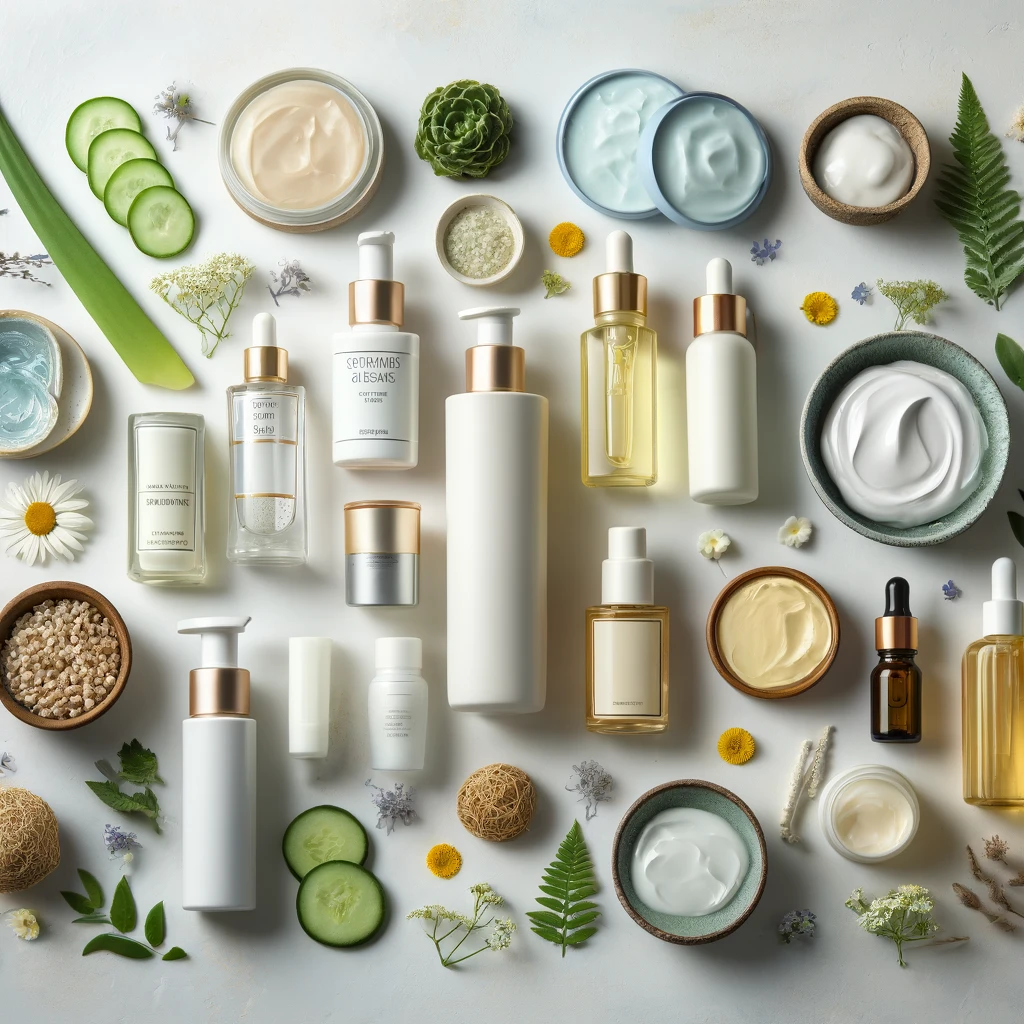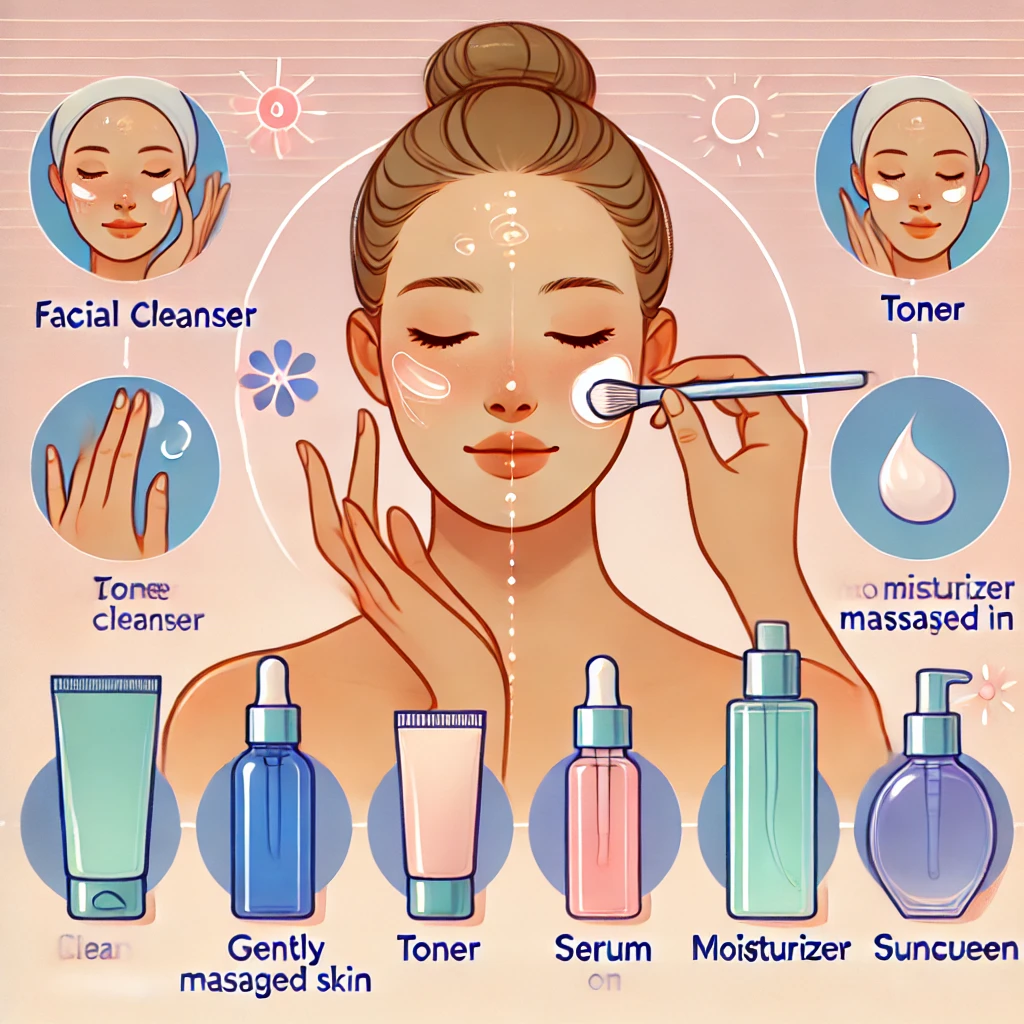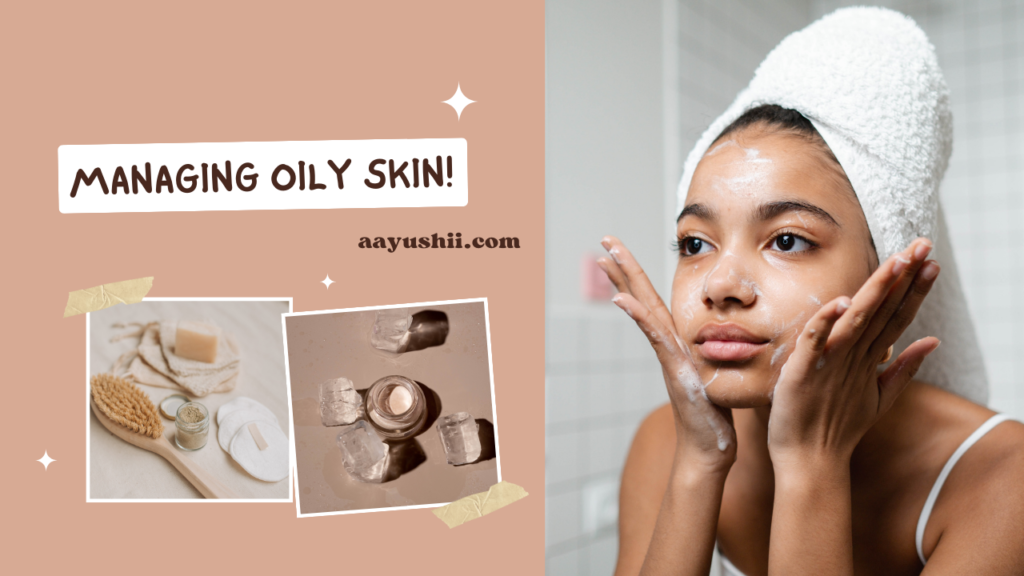Normal skin is often regarded as the “ideal” skin type, characterized by a well-balanced oil production, even texture, and minimal sensitivity. While it may seem that normal skin requires less effort to maintain, neglecting its care can lead to the development of common skin concerns such as dehydration, aging, or dullness. A proactive and science-driven skincare routine is essential to preserve its natural glow and prevent future imbalances. In this article, we’ll explore the unique characteristics and underlying science of normal skin, delve into the causes of potential disruptions, and recommend research-backed ingredients and products to keep normal skin healthy and radiant.
What Defines Normal Skin?

Normal skin is marked by equilibrium in oil production and hydration levels. It is neither excessively oily nor overly dry, with a smooth texture, few visible pores, and minimal blemishes or sensitivity. However, this balance does not make it immune to environmental stressors, aging, or lifestyle-induced issues. Addressing these factors early ensures the longevity of a healthy complexion.
What Can Disrupt Normal Skin?
Even normal skin can face challenges when exposed to internal or external stressors. Understanding these causes is the first step to maintaining its balance:
1. Environmental Stressors
Exposure to ultraviolet (UV) rays, pollution, and seasonal changes can disrupt normal skin. UV rays accelerate aging by breaking down collagen and elastin, leading to fine lines and dullness. Pollution introduces free radicals that cause oxidative stress, potentially resulting in uneven skin tone and texture.
2. Hormonal Shifts
While normal skin generally has stable sebum production, hormonal fluctuations during puberty, pregnancy, or menopause can lead to temporary imbalances, such as increased oiliness or dryness.
3. Age-Related Changes
As the skin ages, it naturally loses collagen, elastin, and hyaluronic acid, leading to reduced elasticity, hydration, and a more fragile skin barrier. Normal skin may begin to show signs of aging, such as wrinkles and sagging, if not cared for appropriately.
4. Lifestyle Factors
Poor nutrition, lack of hydration, smoking, and inadequate sleep can impair the skin’s ability to repair and regenerate, leading to premature aging or dullness.
5. Skincare Missteps
Overloading normal skin with harsh products or neglecting essential hydration can weaken its natural barrier. Using products not suited for normal skin, such as excessively mattifying or heavy formulations, can disrupt its delicate balance.
6. Optimal Hydration and Moisture Levels
Normal skin maintains an appropriate balance of water and oil. The skin is neither too oily nor too dry, as the moisture content is sufficient to prevent flakiness or tightness. Proper hydration ensures that the skin remains soft, supple, and comfortable throughout the day. Maintaining this moisture balance is critical to skin health, as it keeps the skin plump and reduces the appearance of fine lines and wrinkles.
7. Genetics and Sebum Regulation
Another factor that influences this skin type is genetics. People with normal skin have sebaceous glands that produce an ideal amount of oil (sebum), which helps lock in moisture while protecting the skin from environmental damage. These individuals generally experience even skin texture, smoothness, and a healthy complexion without excessive shine or dry patches.
Key Ingredients and Products for Normal Skin

Normal skin benefits from a preventive approach that preserves its equilibrium and protects against future damage. Here are scientifically backed ingredients and products to maintain and enhance its health:
1. Antioxidants (Vitamin C, Vitamin E, Ferulic Acid)
Antioxidants neutralize free radicals caused by UV rays and pollution, protecting the skin from oxidative stress. Vitamin C brightens the skin, evens tone, and boosts collagen production, while Vitamin E and ferulic acid enhance its protective effects.
How It Works:
Antioxidants shield skin cells from environmental damage and support collagen synthesis, ensuring a firm and youthful appearance.
Recommended Products:
- Serums with stabilized Vitamin C (10–20% concentration)
- Creams containing Vitamin E and ferulic acid for antioxidant synergy
2. Hyaluronic Acid
A natural humectant, hyaluronic acid binds moisture to the skin, keeping it plump and hydrated. It works without altering the oil balance, making it perfect for normal skin.
How It Works:
Hyaluronic acid attracts water molecules, enhancing hydration and supporting a smooth, dewy texture.
Recommended Products:
- Lightweight hyaluronic acid serums
- Gel-based moisturizers infused with hyaluronic acid
3. Peptides
Peptides are short chains of amino acids that stimulate collagen and elastin production, helping to maintain skin elasticity and firmness.
How It Works:
Peptides promote cell repair and regeneration, reducing the appearance of fine lines while strengthening the skin’s barrier.
Recommended Products:
- Peptide-rich night creams for anti-aging benefits
- Serums with copper peptides for enhanced repair
4. Ceramides
Ceramides are lipids naturally found in the skin barrier, essential for retaining moisture and protecting against external irritants. Using ceramide-infused products helps reinforce the barrier function.
How It Works:
Ceramides restore the lipid layer, ensuring the skin remains supple and resilient.
Recommended Products:
- Barrier-repair creams with ceramides
- Gentle cleansers containing ceramides for non-stripping hydration
5. Sunscreen with Broad-Spectrum Protection
Normal skin, like any skin type, requires daily sun protection to prevent premature aging and pigmentation. Sunscreens with broad-spectrum protection shield against both UVA and UVB rays.
How It Works:
Mineral sunscreens with zinc oxide or titanium dioxide physically block UV rays, while chemical sunscreens absorb and neutralize them.
Recommended Products:
- Lightweight, non-comedogenic sunscreens with SPF 30 or higher
- Tinted sunscreens for added coverage and protection
6. Alpha Hydroxy Acids (AHAs)
AHAs like glycolic acid and lactic acid gently exfoliate dead skin cells, revealing a brighter, smoother complexion. Occasional use helps maintain normal skin’s even tone.
How It Works:
AHAs dissolve bonds between dead skin cells, promoting cell turnover without disrupting hydration levels.
Recommended Products:
- Mild exfoliating toners with lactic acid
- Weekly AHA masks for radiance
7. Niacinamide (Vitamin B3)
Niacinamide strengthens the skin’s barrier, evens tone, and enhances hydration. It also offers mild anti-inflammatory benefits, making it a versatile ingredient for normal skin.
How It Works:
Niacinamide improves moisture retention and regulates oil production, ensuring a balanced complexion.
Recommended Products:
- Niacinamide serums (5% concentration)
- Day creams with niacinamide for all-day hydration
Skincare Routine for Normal Skin

Consistency is the cornerstone of a healthy skincare routine. Here’s a tailored routine to keep normal skin glowing and resilient:
Morning Routine:
- Cleanse: Use a gentle, sulfate-free cleanser to remove impurities without stripping moisture.
- Antioxidant Serum: Apply a Vitamin C serum to protect against free radicals and brighten the complexion.
- Moisturizer: Use a lightweight moisturizer with hyaluronic acid or niacinamide to lock in hydration.
- Sunscreen: Finish with a broad-spectrum sunscreen to shield against UV damage.
Evening Routine:
- Cleanse: Remove makeup and impurities with a mild cleanser or cleansing balm.
- Exfoliation (2–3 times a week): Use an AHA-based toner to boost radiance.
- Treatment Serum: Apply a peptide-rich serum or retinol for overnight repair.
- Moisturizer: Use a ceramide-infused night cream to nourish and strengthen the skin barrier.
Lifestyle Tips for Healthy Skin

- Hydration: Drink at least 8 glasses of water daily to support skin hydration from within.
- Balanced Diet: Incorporate antioxidant-rich foods like berries, leafy greens, and fatty fish to nourish the skin.
- Stress Management: Practice mindfulness or yoga to reduce stress, which can disrupt skin balance.
- Quality Sleep: Aim for 7–9 hours of sleep per night to allow the skin to repair and regenerate.
Conclusion
Normal skin may be low maintenance compared to other skin types, such as oily or combination skin, but it still requires a proactive approach to preserve its natural balance and radiance. By incorporating scientifically validated ingredients like antioxidants, hyaluronic acid, peptides, and ceramides into your routine, you can protect your skin from environmental stressors and signs of aging. Regular care, combined with a healthy lifestyle, will help ensure that your normal skin remains vibrant, smooth, and youthful for years to come.
FAQ: Caring for Normal Skin
- 1. What is considered normal skin?
Normal skin is characterized by a balanced amount of oil and moisture, with minimal sensitivity and a smooth, even complexion. It doesn’t lean excessively oily or dry and generally has small pores and few blemishes.
- 2. Does normal skin need a specific skincare routine?
Yes, even normal skin requires a dedicated routine to maintain its balance and radiance. A basic routine should include cleansing, moisturizing, sunscreen during the day, and treatments like antioxidants or peptides for long-term skin health.
- 3. What are the best ingredients for normal skin?
Some of the top ingredients for normal skin include:
- Antioxidants (like Vitamin C and E): Protect against environmental damage.
- Hyaluronic Acid: Maintains hydration and plumpness.
- Peptides: Boost collagen production for firmness.
- Ceramides: Strengthen the skin barrier and lock in moisture.
- 4. How often should I exfoliate normal skin?
Exfoliate 1–2 times a week using a gentle exfoliant to remove dead skin cells and promote cell turnover. Avoid over-exfoliating, as this can disrupt the skin’s natural balance.
- 5. Do I need sunscreen if my skin isn’t sensitive?
Absolutely. Sunscreen is essential for all skin types, including normal skin, to prevent premature aging, sun damage, and hyperpigmentation. Use a broad-spectrum SPF 30 or higher daily.
- 6. Can normal skin become oily or dry over time?
Yes, external factors like weather changes, aging, stress, or using harsh products can temporarily make normal skin lean toward dryness or oiliness. A consistent and balanced skincare routine can help minimize these fluctuations.
- 7. Is a night cream necessary for normal skin?
A night cream isn’t mandatory but can be beneficial. Opt for lightweight, nourishing products with hydrating ingredients and peptides to support skin repair overnight.
- 8. What lifestyle habits help maintain normal skin?
Key habits for maintaining normal skin include:
- Staying hydrated.
- Eating a balanced diet rich in fruits and vegetables.
- Managing stress through mindfulness or exercise.
- Getting 7–9 hours of sleep daily.
- Avoiding smoking and excessive alcohol consumption.
- 9. Should normal skin be treated differently in different seasons?
Yes, adjust your routine to address seasonal changes:
- In winter, focus on extra hydration with richer moisturizers.
- In summer, prioritize lightweight products and sunscreen to manage heat and UV exposure.
- 10. Are anti-aging products necessary for normal skin?
While normal skin may age gracefully, introducing anti-aging ingredients like retinol, peptides, and antioxidants in your late 20s or early 30s can help delay fine lines and wrinkles.





